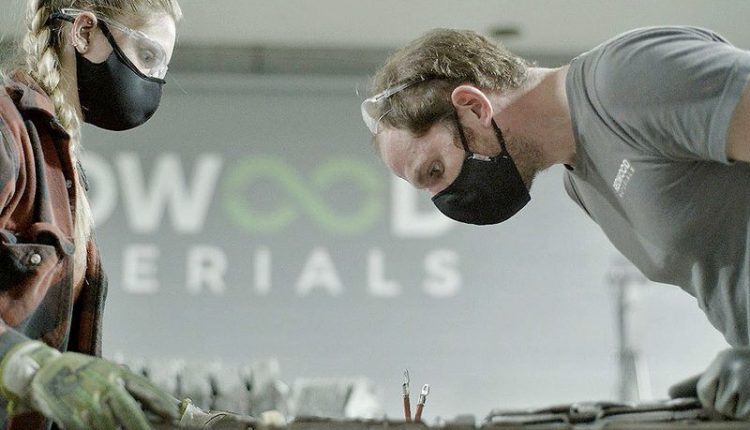The gap between demand and reality is a growing concern. Meeting zero-emission transportation goals codified last month at the United Nations Climate Change Conference would require 17 times more lithium production by 2040 than the current output, according to an analysis by Benchmark Mineral Intelligence.
“Right now, lithium demand is growing at three times the speed of lithium supply,” warned Simon Moores, CEO of Benchmark. “That’s a big problem that needs to be solved.”
Reaching the UN conference goals would further require more than 5 million tons of nickel sulphate production, about 19 times more than current annual output, according to the EV supply chain consulting firm.
Straubel foresaw that problem looming while he served as chief technology officer at Tesla, where he developed much of the automaker’s core battery technology and shepherded the Gigafactory outside Sparks, Nev., into existence. He founded Redwood Materials as a prospective solution in 2017, locating the company in Carson City not only for its proximity to the Gigafactory, but to capitalize on Nevada’s mining history and a work force experienced in metallurgy. Straubel left Tesla in 2019 to focus on recycling full time.
Since then, he’s come to believe the answer to solving those specific materials shortages and others like them lies, at least in part, in mining the junk drawers of America. Beyond discarded EV batteries and scraps from production, Redwood is collecting electric toothbrushes, power tools and laptops. Vacuum cleaners and cellphones too.
“You can make a whole new EV battery out of something on the order of 150 to 160 cellphone batteries,” he said.
Awaiting deconstruction, battery-powered products of every sort are piled in boxes that stretch halfway to the ceiling in a warehouse at Redwood’s headquarters that’s roughly the size of a football field. Some of them arrive via partnerships with the likes of Amazon and Panasonic, for which Redwood is also providing recycled battery materials, and AESC, which makes the batteries for the Nissan Leaf.
Others come from electric bus manufacturer Proterra and Specialized Bicycle Components Inc., a prominent e-bike manufacturer. Sometimes ordinary citizens simply mail in their old devices.
“People don’t know what to do with this stuff, and even if they do have some idea, it’s not easy for them to do it,” Straubel said. “If it’s an iPhone, I guess you could take it to Apple. But if it’s your lawn mower battery, what do you do with that thing?”
Most people would throw it away. Roughly 90 percent of batteries wind up in landfills, according to Redwood, a waste underscored by the realization the mountainous heaps of junk the company has collected represent only a microscopic sliver of the prospective market.


